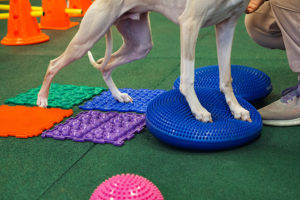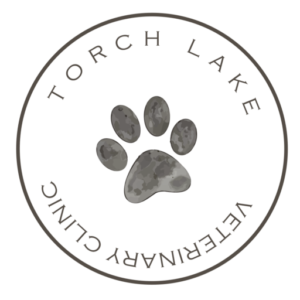| Underwater Treadmill | Orthopedic Rehab Consult | Neurological Rehab Consult | |
|---|---|---|---|
| Per Visit | $50 | $120 | $140 |
8 and 16 visit packages available
Rehabilitation interventions available: underwater treadmill, laser, gait training, stretching, strengthening, manual techniques
What conditions are typically referred to for animal rehabilitation?
Movement dysfunction
- Gait abnormalities
- Problems with stairs
- Slow transitions from sitting to standing
- Difficulty getting into a car
- jumping, agility – Sports specific issues
- Balance problems
- Endurance limitations
Orthopedic
- Joint conditions
- surgical treatments/protocols – Post
- Arthritis
- -Muscle strains/tears
- Ligament tears/sprains
- Fractures
Geriatric
- Arthritis
- Muscle wasting
Neurological
- Disc herniations
- Paralysis/paresis
- Degenerative myelopathy
Sports Injuries
- Agility/Dock Jumping
- Competition
- Breed/species specific, e.g. racing
Job Specific
- Police team
- Herding
- Search and rescue
Wellness/Prevention
- Weight management
- Conditioning
Rehabilitation is also known as physical therapy in human medicine. Rehabilitation focuses on recovery or improving the mobility of our pets. As with humans, rehabilitation is a holistic approach to managing pathology and addressing functional limitations. Animal rehabilitation is a team approach with the owner, veterinarian, and rehabilitation Specialist.
AVMA & APTA
The American Veterinary Medical Association guidelines state that veterinary physical therapy should be performed by a licensed veterinarian, a veterinary technician, or a licensed physical therapist educated in the anatomy and physiology of animals. The AVMA also recommends that all therapy should be under the supervision of or referred by a licensed veterinarian. The American Physical Therapy Association acknowledges the collaborative relationships of physical therapists and veterinarians and the evolution of specialized practice by
physical therapists in animal rehabilitation.


